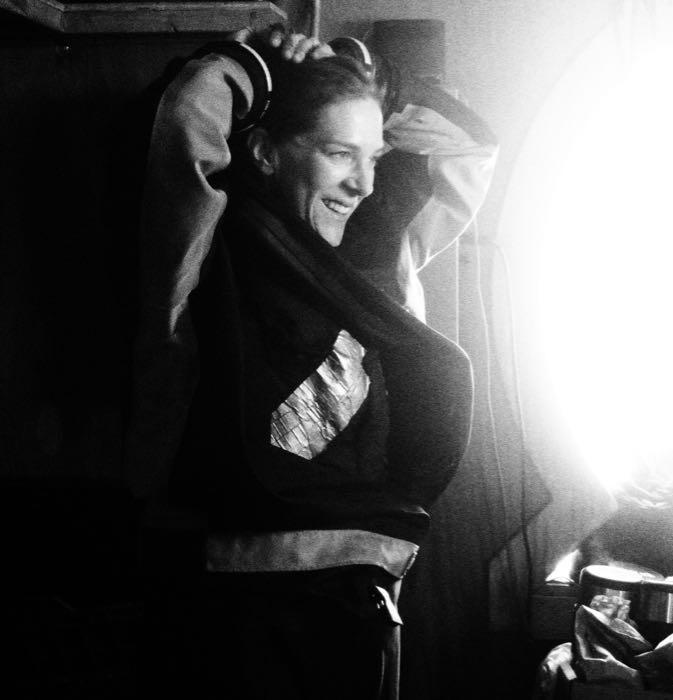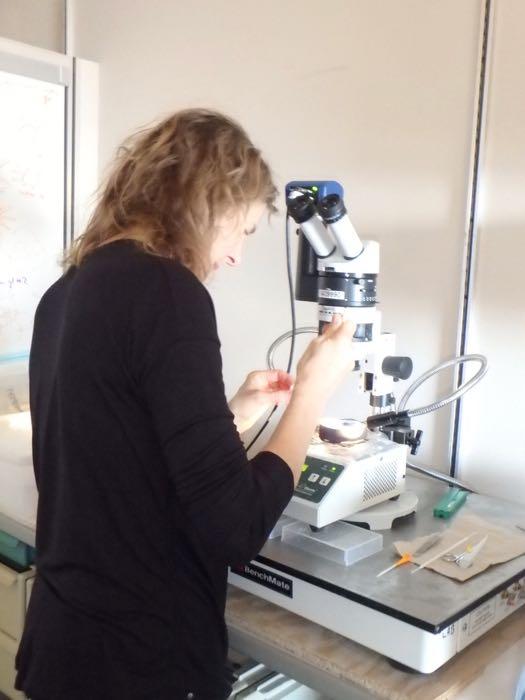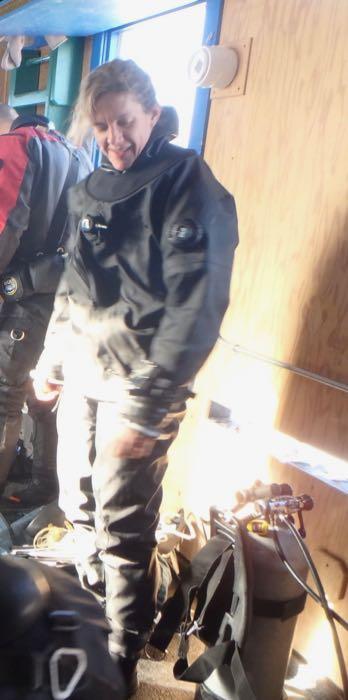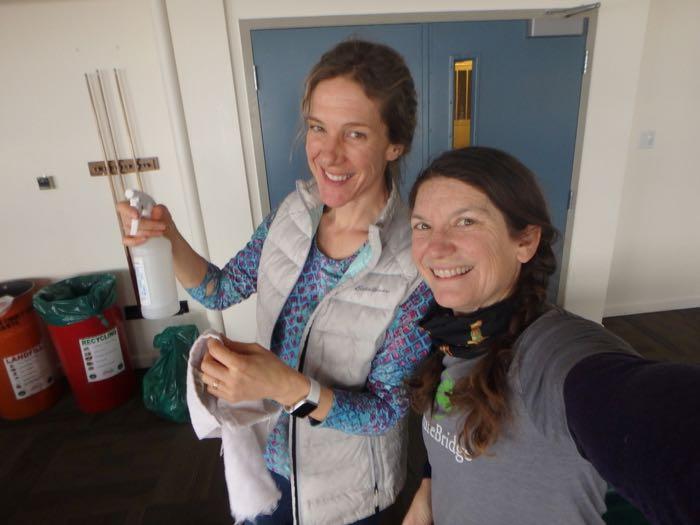"Everything is awesome,
everything is cool when you're part of a team
Everything is awesome,
when you're living out a dream"
-from the Lego movie by Tegan and Sarah
When I stepped off the bus on my first day in Antarctica I was greeted by an amazing team of researchers. I felt so welcomed like I had just arrived into a brand new cool family. Dr. Amy Moran, Aaron Toh, and Graham Lobert form the marine invertebrate research team. Hailing from the University of Hawaii in Manoa, this team has been working together in Antarctica since September. Over the next several posts we'll get to know them a little bit better.
Meet Dr. Amy Moran
 Dr. Amy Moran in the dive locker preparing to dive.
Dr. Amy Moran in the dive locker preparing to dive.
Role on the team: Principal Investigator
Majors in undergrad: Biology and Music She holds a PhD in biology and did her post doc at University of Southern California and the Smithsonian
Most intriguing marine invertebrate: periwinkle snail (family: Littorinidae) because they can live anywhere. Amy spent time chipping these snails out of the ice in Maine and watching them adjust their shells so very little of them touched the hot rocks in Hawaii.
Animal she hopes to see when diving in Antarctica: A 12 legged sea spider. They live in spots that are too deep to dive. She has seen a 10 legged one!
Food she wishes should could have here in Antarctica: mangos
From a young age Dr. Amy Moran has been fascinated with animals and the amazing power of microscopes to help people look closer at the world. Currently an associate professor of marine ecology and evolution at the University of Hawaii, Manoa, Amy's interest in marine invertebrates began at a small college in Lewiston, Maine. As a double major in music and biology at Bates College, Amy took an invertebrate biology class that would, eventually, determine the trajectory of her life. After graduating from Bates Amy decided to pursue her love of music at graudate school. However, an invitation from her invertebrate biology professor at Bates to be a lab assistant at Friday Harbor Laboratories, a marine biology field station in Washington Statefrom changed her life. Friday Harbor was filled with scientists who were enthusiastic about marine science and research. This amazing experience sparked her interest in the diversity of life and solidified her shift from music to biology. Friday Harbor proved to be a turning point.
 Dr. Amy Moran using a microscope to conduct her research on the development of sea spiders and nudibranchs.
Dr. Amy Moran using a microscope to conduct her research on the development of sea spiders and nudibranchs.
Marine invertebrates became especially intriguing to Amy as she became curious about how all of their different systems work. All animals need food, shelter, water, and oxygen. How this actually happens in marine invertebrates often results in many more questions than answers. Her curiosity about these animals led Amy to continue studying marine invertebrates and earn a doctorate in biology from the University of Oregon.
This isn't Amy's first trip down here! Amy's trips to Antarctica began with the Antarctic Training Program for Early Career Scientists in 2001. She was fresh out of grad school and joined biologists from all over the world in Antarctica. Since then she has been back multiple times.
 Dr. Amy Moran in her dry suit preparing to dive in Antarctica.
Dr. Amy Moran in her dry suit preparing to dive in Antarctica.
Not only is Amy the principal investigator for this research team in Antarctica, she also dives in the chilly waters of Antarctica to collect sea spiders and nudibranchs for her research. She started off with scientific diving that supported other people's research and did some cold water diving in Oregon. Antarctica is the first place she has done ice diving.
Her advice to people seeking to study more about marine animals at the university level...think hard about what you actually want to do when picking a program or a major. Do you want to teach about the animals? Do you want to save the environment? Do you want to study the chemistry and physiology of these animals? Marine biology ties in math, physics, and chemistry so if you enjoy those subjects and marine life then a marine biology path could be the right one for you!
 The two Amys (Amy Moran and Amy Osborne) cleaning the lounges in the dorms. Living in the dorms means occasionally filling the role of house mouse. Today was our day!
The two Amys (Amy Moran and Amy Osborne) cleaning the lounges in the dorms. Living in the dorms means occasionally filling the role of house mouse. Today was our day!
FRIDAY POETRY (Quatrain- the end of the line must rhyme with a word at the end of another line.)
Snow falling from the sky
Tiny bit of joy floating by
It makes me smile in the cold
Uh oh, I have laundry to fold!
Now you try! A quatrain is a four line poem. The last word in each line should rhyme with the last word in another line. There should be a pattern to the rhyming AABB, ABAB, ABCB, ABBA
TRIVIA ANSWERS COMING TOMORROW!!!
 Amy Osborne with snow falling at McMurdo Station, Antarctica.
Amy Osborne with snow falling at McMurdo Station, Antarctica.

Comments
Add new comment